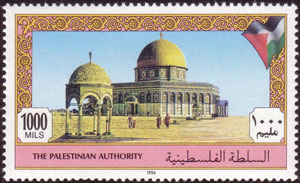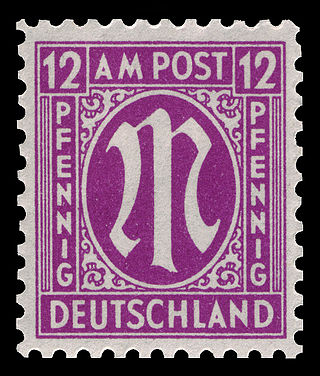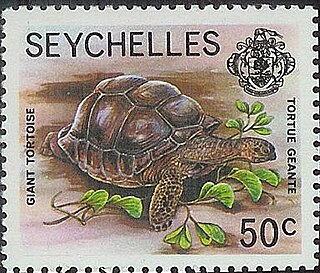Related Research Articles

Each "article" in this category is a collection of entries about several stamp issuers, presented in alphabetical order. The entries are formulated on the micro model and so provide summary information about all known issuers.

John Harry Robson Lowe was an English professional philatelist, stamp dealer and stamp auctioneer.

The postage stamps and postal history of Israel is a survey of the postage stamps issued by the state of Israel, and its postal history, since independence was proclaimed on May 14, 1948. The first postage stamps were issued two days later on May 16, 1948. Pre-1948 postal history is discussed in postage stamps and postal history of Palestine.
The postage stamps and postal history of Palestine emerges from its geographic location as a crossroads amidst the empires of the ancient Near East, the Levant and the Middle East. Postal services in the region were first established in the Bronze Age, during the rule of Sargon of Akkad, and successive empires have established and operated a number of different postal systems over the millennia.

The Palestinian National Authority began in 1994 to issue stamps and operate postal services as authorized by the Oslo Accords.

The postal history of Turkey and its predecessor state, the Ottoman Empire, dates to the 18th century when foreign countries maintained courier services through their consular offices in the Empire. Although delayed in the development of its own postal service, in 1863 the Ottoman Empire became the second independent country in Asia to issue adhesive postage stamps, and in 1875, it became a founding member of the General Postal Union, soon to become the Universal Postal Union. The Ottoman Empire became the Republic of Turkey in 1923, and in the following years, its postal service became more modernized and efficient and its postage stamps expertly designed and manufactured.

This is a survey of the postage stamps and postal history of Jordan, formerly Transjordan.

This is a survey of the postage stamps and postal history of Egypt.

The British Library Philatelic Collections is the national philatelic collection of the United Kingdom with over 8 million items from around the world. It was established in 1891 as part of the British Museum Library, later to become the British Library, with the collection of Thomas Tapling. In addition to bequests and continuing donations, the library received consistent deposits by the Crown Agency and has become a primary research collection for British Empire and international history. The collections contain a wide range of artefacts in addition to postage stamps, from newspaper stamps to a press used to print the first British postage stamps.

Janusz Marja Stefan Rogala Kaluski (1924–2010) was a sapper in the Polish Army who took part in the D-Day landings of World War II and who later won the Cross of Valour. In later life, Kaluski devoted himself to the philately of Poland, eventually becoming a Fellow of the Royal Philatelic Society London and donating his stamp collection of fifty years to the British Library Philatelic Collections in 2003.
The Bailey Collection is a collection of philatelic material relating to the Spanish Civil War that forms part of the British Library Philatelic Collections. The collection was donated to the Library by the Spanish Study Circle in 2007.
The Burnett Collection is a collection of Hyderabad stamps, postal stationery, and postal history material formed by A.H. Burnett and given to the British Library by his sons A.D. and R.G. Burnett in 1991. It forms part of the British Library Philatelic Collections.
The Chismon Collection is a collection of Croatian philatelic material formed by Harvey John Chismon and given to the British Library by his son Joseph Chismon in 2009. It forms part of the British Library Philatelic Collections.
The Blackburn Collection is a collection of philatelic material relating to the Spanish Civil War that forms part of the British Library Philatelic Collections. The collection also includes 17th century letters from Kings Philip II, III and IV of Spain and correspondence delivered by the Message Carriers of Cadiz. It was donated to the Library by Tony Blackburn and is in 35 volumes.
The Shelley Collection is a collection of philatelic material relating to the Spanish Civil War that forms part of the British Library Philatelic Collections.
The Murray Collection is a collection of philatelic material relating to China that forms part of the British Library Philatelic Collections.
The Walker Collection is a collection of philatelic material relating to the Second World War German occupation issues of the Channel Islands that forms part of the British Library Philatelic Collections. The collection is mainly of Guernsey material. It was formed by G.L. Walker and donated to the British Museum in 1948.

The Model Collection is a collection of 1945–1946 local provisional stamps of Germany issued following the allied occupation, unused and on covers that forms part of the British Library Philatelic Collections. It was formed by Dr Walther Model von Thunen and donated to the British Museum in 1956.
The Kaluski Collection is a collection of stamps of Poland that forms part of the British Library Philatelic Collections. It was formed by Janusz Kaluski and donated to the library in 2003 and includes 46 volumes detailing the stamps and postal history material of Poland from 1835 to 2002.

This is a survey of the postage stamps and postal history of Seychelles, a 115 island nation spanning an archipelago in the Indian Ocean, some 1,500 kilometres (932 mi) east of mainland Africa, northeast of the island of Madagascar. Seychelles was administered as a dependency of Mauritius from 1810 to 1903. Independence was granted in 1976.
References
- ↑ The Harrison and Sons Collection Archived 2012-10-20 at the Wayback Machine British Library, 28 January 2012.